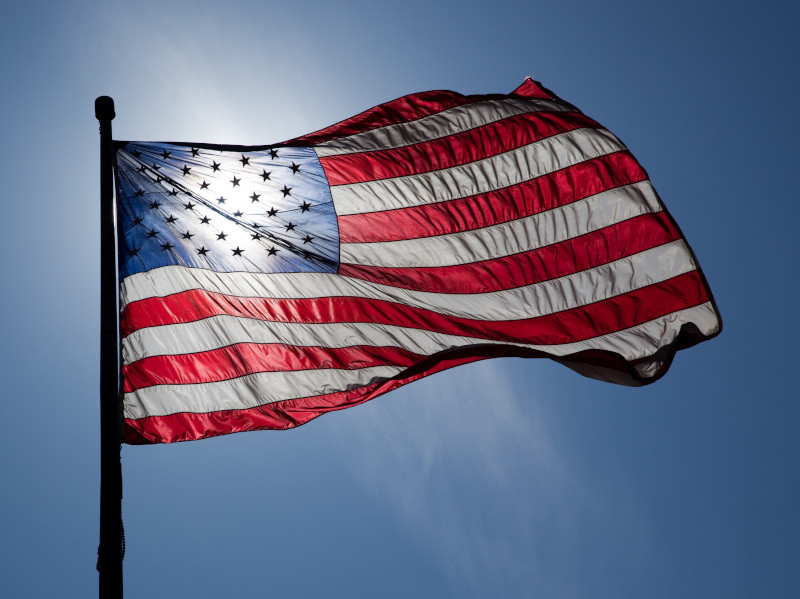
The following opinion article is being republished with the permission of Washington Examiner. This article is a part of their Restoring America series.
OCTOBER 11, 2021 05:42 PM
BY MATTHEW SPALDING
People are deeply divided about the meaning of this country, its history, and how it should be governed. These divisions, calling to mind the disagreements between the colonists and King George and those between the Union and the Confederacy in the Civil War, amount to a dispute over not only the history but also the present and future of our country.
For some, history is merely another tool in today’s politics. They do not study the past in order to understand the past, but to deploy it in current battles. At best, this is history backward: Counterfactual “historians,” with only a casual relationship to the truth of history, look for pieces of the past that fit their political narrative. This is not history but ideology, and it is tearing our nation apart.
An honest history confronts the past, warts and all, with due regard for the circumstances of the time. In our case, the history that brought us to where we are today, launched by our Founding Fathers and driven by our constitutional development, is what binds us together as a nation and as a people.
The United States is in most respects a country like any other. It is different in that it begins with a statement, the Declaration of Independence, of the principles that guide its political existence: equal rights by nature, consent of the governed, liberty and justice for all. These principles are said to be both universal and eternal. No nation before America ever dared state those truths as the basis for its politics, and none has strived harder, or done more, to achieve them.
Abraham Lincoln aptly described the government’s fundamental principles as “a standard maxim for free society,” which should be “familiar to all, and revered by all; constantly looked to, constantly labored for, and even though never perfectly attained, constantly approximated.” The hard work to attain them would, Lincoln said, constantly spread and deepen the influence of these principles and augment “the happiness and value of life to all people of all colors everywhere.” The story of America is the story of this ennobling struggle.
Civic education, which is to say the education and formation of citizens, should teach not only the principles and practices of liberty but also an appreciation of the country that upholds and protects those principles and that liberty. Beginning with the family, then K-12 schools, and even in higher education, this is done especially by teaching American history. History fosters attachment, and attachment, a necessary precondition to sustained civic engagement, fosters patriotism. James Wilson reminds us: “Law and liberty cannot rationally become the objects of our love unless they first become the objects of our knowledge.”
A healthy attachment to this country, true patriotism, is neither blind to its flaws nor fanatical in believing that America is the source of all good. Rather, the right sort of love of country holds it up to an objective standard of right and wrong, with the desire and intent that the country do what is right. By studying America’s true heritage, students learn to embrace and preserve the triumphs of their forefathers while identifying and avoiding their mistakes.
As the most important requisite for self-government, the public mission of America’s schools in the past was to transmit a true knowledge of the past, a deep reverence for liberty, and a profound love of country. The recently released Hillsdale 1776 Curriculum, covering civics and history for grades K-12 and free of charge to anyone and everyone who wants it, is a significant contribution in reviving citizen education in America.
Thomas Jefferson called the Declaration of Independence an expression of the American mind. Our aim must be a clear expression and forthright defense of America’s principles in the public square so that they become, once again, an expression of the American mind. Despite constant criticism and scorn by elites in academics, politics, and the media, many people, if not most, still believe in the uniqueness of this country and respect the noble ideas put forth by the founders. We must give voice to all those who have not given up on their country’s experiment in self-government, have not concluded the cause of liberty and limited constitutional government is lost, and have not accepted America’s decline as inevitable.
As we approach the 250th anniversary of our country’s birth, we must rekindle our enlightened love of liberty and of the country that is responsible for upholding the great principles of republican self-government. An understanding of our deepest principles, as well as an appreciation of our history, tells us why this nation is a great achievement and worth defending. A rediscovery of this shared identity, rooted in the knowledge of our founding principles, is the source of the patriotism and unity by which we will restore our country.
Matthew Spalding is Hillsdale College’s Vice President for Washington Operation and the Dean of the Steve and Amy Van Andel Graduate School of Government in Washington, D.C. He was also executive director of the President’s Advisory 1776 Commission.